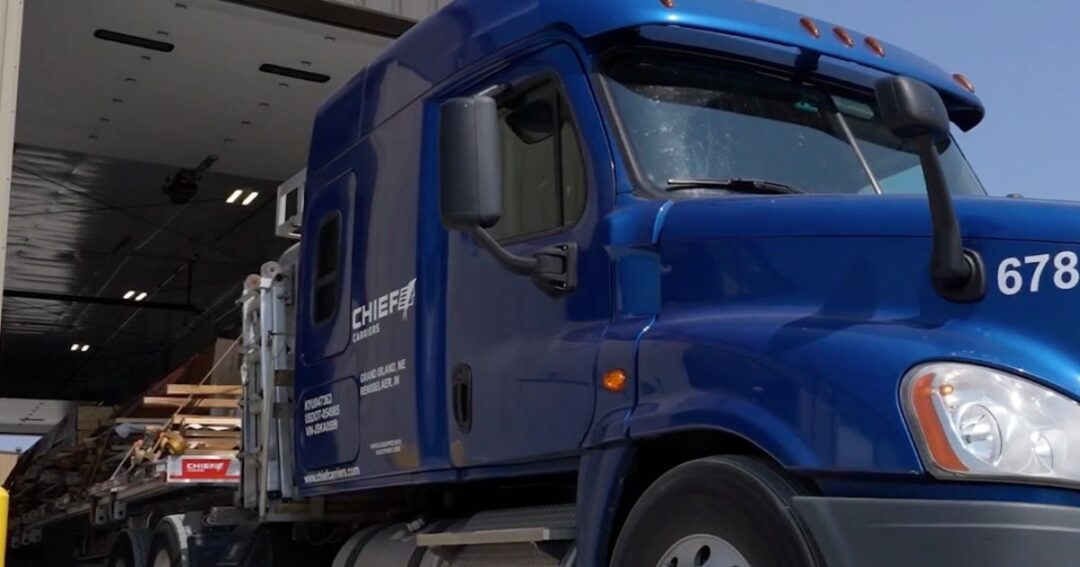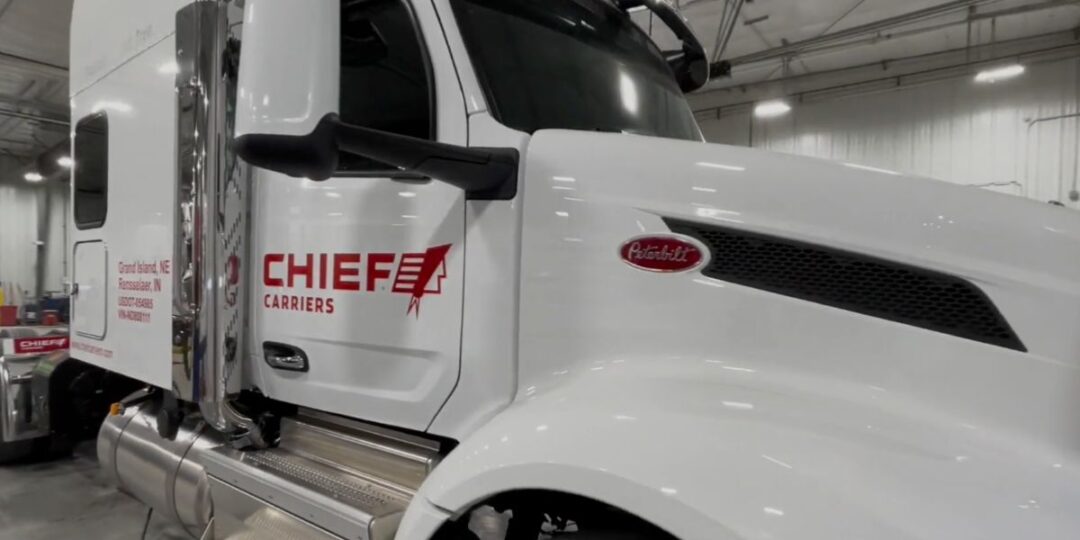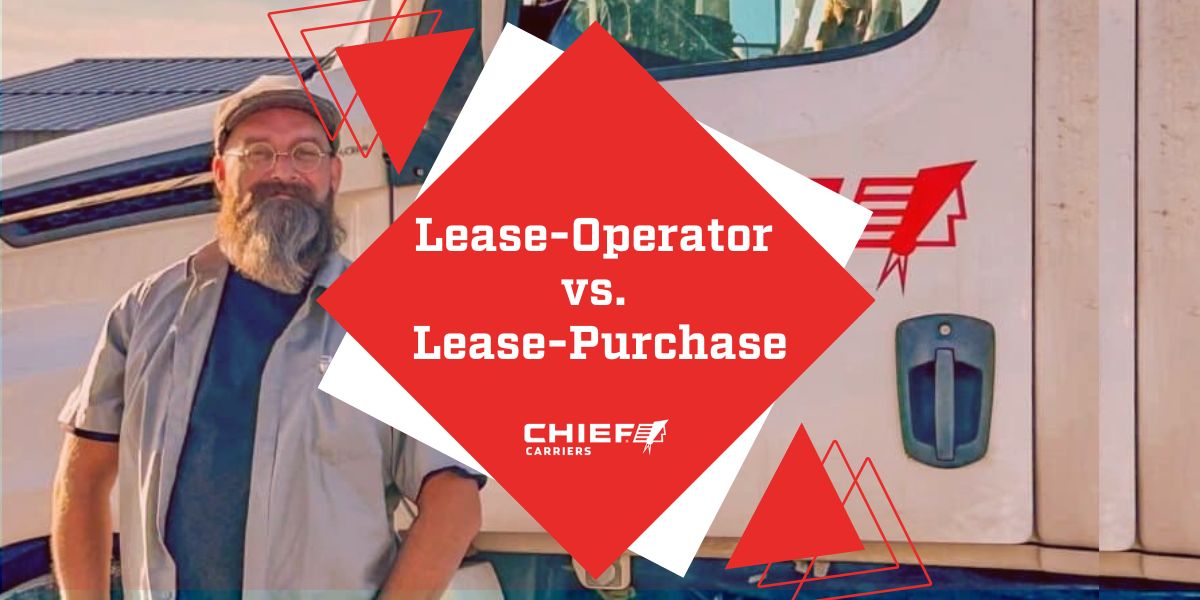Exploring Semi Truck Leasing Programs: A Pathway to Trucking Success
Semi truck leasing offers a doorway to the trucking industry for those daunted by the high costs of truck ownership. It provides a practical solution for aspiring truck drivers without requiring a large initial investment.
Stepping into truck ownership can be a big move. It’s full of challenges and expenses that many are not ready for.
But there’s a different path that might suit you better: semi truck leasing. This option offers a way to get started without the hefty upfront costs.
In this guide, we will explore how semi truck leasing programs work. They are designed to help aspiring truck drivers like you.
Our goal is to make the idea of leasing clear and helpful.
Whether you’re just starting out or looking for a new way in the trucking industry, this information is for you.
Let’s explore semi truck leasing and see how it can be a stepping stone to achieving your trucking ambitions.

Introduction to Semi Truck Leasing
Semi truck leasing serves as a bridge for individuals aiming to operate within the trucking industry without the full financial burden of purchasing. It’s an attractive option for those cautious about the steep investment in truck ownership.
This leasing model unlocks opportunities in trucking with a reduced upfront cost. It particularly benefits individuals or companies seeking fleet expansion or entry into the trucking sector without heavy initial expenditures.
What is Semi Truck Leasing and Who is it For?
Semi truck leasing is a strategic choice for individuals and businesses not yet prepared to invest in purchasing trucks. It appeals to a broad audience, from newcomers to the trucking industry to small business owners looking to scale their operations affordably.
Offering a lower financial commitment, leasing provides the utility of a truck while mitigating the risks associated with ownership. It’s an ideal solution for those seeking to navigate the trucking world with flexibility and minimized upfront costs.
Semi Truck Leasing: The Basics
Semi truck leasing offers a practical path to accessing a commercial vehicle, minimizing upfront expenditures typically associated with purchasing. This arrangement benefits those either new to the trucking industry or seeking to expand operations without the financial burden of ownership.
It provides a strategic way to utilize a truck with manageable payment terms, enabling businesses and individual drivers to allocate resources more efficiently elsewhere.
Defining the Scope and Structure of a Lease
The essence of a truck lease lies in its clear terms, which establish the duration of the lease, monthly payment obligations, and the responsibilities for maintenance.
Such agreements often include options for the lessee at the lease’s conclusion, such as purchasing the vehicle.
This flexibility makes leasing an attractive option for many in the trucking field, offering a tailored solution to meet various operational needs and financial capabilities.

Commercial Truck Lease Options
Navigating through commercial truck lease options is essential to match your specific needs with the right type of lease. The market presents a variety of leases, each designed to offer particular benefits suited to different operational goals.
Understanding these options is key to making an informed decision that aligns with your financial and business strategy.
Types of Commercial Leases and Their Features
Commercial truck leasing is diverse, featuring options like full-service leases and lease-purchase agreements.
Full-service leases are comprehensive, covering maintenance and repairs, thereby offering peace of mind to lessees.
Lease-purchase agreements, in contrast, provide a path toward ownership, making them ideal for individuals who wish to own the truck eventually.
These options serve distinct purposes, accommodating the varied preferences of trucking professionals.
How to Lease a Truck
Leasing a truck requires understanding your needs and the terms offered by leasing companies. It’s important to assess your situation carefully to find a lease that provides the flexibility and financial advantage you’re seeking.
The process involves a series of steps, from determining what type of truck best suits your needs to selecting a reputable leasing company.
This approach ensures you embark on a path that aligns with your career objectives in the trucking industry.
Key Steps in the Leasing Process
The leasing process begins with a clear assessment of your trucking needs, including the size, power, and efficiency of the vehicle.
Research and compare different leasing companies to find one that matches your criteria and offers favorable terms. It’s essential to scrutinize the lease agreements, focusing on payment schedules, maintenance responsibilities, and any usage limitations.
Engaging in discussions with leasing representatives to clarify doubts and negotiating terms that suit your financial and operational needs are critical steps toward securing a beneficial lease agreement.

Lease Agreement for Trucking Company
A lease agreement with a trucking company formalizes the leasing of a truck, detailing terms and conditions crucial for both parties. It’s vital to thoroughly understand this document to ensure it serves your career aspirations and financial situation.
Such agreements dictate the framework of your lease, encompassing all critical aspects from duration to financial commitments, and play a pivotal role in your professional journey within the trucking industry.
Essential Components of a Lease Agreement
The foundation of a lease agreement rests on its duration, payment schedule, maintenance responsibilities, and any restrictions like mileage caps. These elements define your lease’s scope, influencing your operational flexibility and financial obligations.
Additionally, the agreement outlines terms for early termination and options for purchasing the truck at the lease’s conclusion. A comprehensive understanding of these components is essential for a successful leasing experience, enabling informed decisions that align with your trucking career objectives.
Leasing onto a Trucking Company: What You Need to Know
Leasing onto a trucking company offers a unique opportunity for drivers seeking stable work and income by hauling under the company’s authority. It’s a significant commitment that partners you directly with a company, potentially shaping the trajectory of your trucking career.
Fully understanding the implications of this decision is crucial, as it affects not just your day-to-day operations but also your long-term goals within the industry.
Benefits and Considerations of Leasing Onto
Leasing onto a trucking company comes with the advantage of consistent job availability, which can translate into steady earnings. Additional perks often include access to fuel discounts and maintenance services, enhancing operational efficiency.
However, this arrangement typically offers less flexibility in choosing routes and adhering strictly to the company’s operational policies and schedules, potentially impacting your autonomy.
Carefully balancing these factors is essential in deciding whether leasing onto aligns with your professional aspirations and personal preferences.
Financial Considerations in Semi Truck Leasing
Understanding the financial implications of semi truck leasing is essential for making an informed decision. Beyond the monthly payments, various factors contribute to the total cost of leasing. These include initial investments, like down payments, and ongoing expenses such as maintenance.
Being aware of these financial aspects helps in planning and budgeting effectively, ensuring the lease agreement aligns with your financial health and business strategy.
Understanding Costs, Payments, and Financial Obligations
The cornerstone of financial planning in semi truck leasing lies in comprehending the monthly payments, influenced by the truck’s value and lease duration.
Initial expenses, including down payments and security deposits, set the foundation for your financial commitment. Equally important are the maintenance and repair responsibilities, which could either be included in the lease or fall on your shoulders.
Moreover, potential penalties for early termination or exceeding mileage limits must be considered, as they directly impact your financial obligations and operational budget.

Ownership Options After Leasing
Completing a semi truck lease opens up critical decisions for drivers, directly influencing their trucking industry trajectory. The choice between pursuing ownership of the leased vehicle or returning it presents a strategic crossroad.
This decision not only affects immediate operational capabilities but also shapes financial planning and career direction. Understanding available options post-lease is essential for aligning future steps with personal goals and economic realities.
Lease-to-Own vs. Returning the Truck
Lease-to-own agreements offer a pathway to truck ownership at the lease’s conclusion, appealing to drivers aiming for long-term investment in their trucking operations. This arrangement typically includes a final purchase option, set at the lease initiation, allowing for a smooth transition to ownership.
Alternatively, returning the truck provides an opportunity for drivers to remain flexible, avoiding long-term commitments or preparing for an upgrade. Assessing the benefits and drawbacks of each, including potential end-of-lease obligations, is vital for making informed decisions that support future success.
Maintenance Responsibilities in Truck Leasing
Navigating maintenance responsibilities within a truck leasing agreement is crucial for ensuring the vehicle’s reliability and performance. This arrangement dictates who is accountable for various maintenance and repair tasks, a fundamental consideration for both parties involved.
A well-maintained truck is vital for operational efficiency and safety, making it essential to understand and negotiate these terms clearly at the outset of any lease agreement.
Who is Responsible for What?
The delineation of maintenance duties usually assigns the lessee with routine upkeep tasks, such as oil changes and tire maintenance, while the lessor takes on more significant repairs and overall vehicle health.
Knowing the specifics of these responsibilities, outlined in the lease agreement, helps lessees plan for associated costs and responsibilities. Engaging in a lease with a comprehensive understanding of these obligations ensures smoother operational processes and aids in financial planning.
Potential Benefits and Drawbacks of Semi Truck Leasing
Exploring semi truck leasing offers numerous benefits, notably the reduction in upfront costs which enhances cash flow and financial flexibility for businesses. This leasing option also alleviates the burden of significant capital investment required for purchasing, making it an appealing choice for many in the trucking industry.
However, understanding the potential drawbacks, including long-term cost implications and operational restrictions, is crucial for making a balanced decision that suits your business strategy and growth plans.
Weighing the Pros and Cons
Leasing a semi truck provides immediate financial relief and operational flexibility, including access to modern vehicles and avoiding depreciation concerns. Maintenance inclusivity under leasing agreements can further mitigate unexpected repair costs, ensuring smoother operations.
Nevertheless, the absence of ownership and potential higher costs over time, coupled with contractual limitations like mileage caps, pose considerations that necessitate careful evaluation. Assessing these factors thoroughly will guide businesses and individuals in choosing a leasing path that aligns with their operational needs and financial goals.
Final Thoughts About Semi Truck Leasing
Semi truck leasing emerges as a flexible solution for many in the trucking industry, offering a viable alternative to outright purchase with its lower upfront costs and financial flexibility. It caters to a wide range of needs, from new drivers entering the industry to established businesses looking to expand their fleets without the heavy burden of large capital investments.
Understanding the various aspects of leasing, from the basics and financial considerations to maintenance responsibilities, is key to making an informed decision.
The options available through leasing, including the potential to eventually own the truck, provide a pathway for growth and success in the trucking world. Each lease agreement presents unique benefits and considerations, making it crucial to weigh these carefully against your business model and long-term goals.
As you consider semi truck leasing, remember it’s about finding the right fit for your situation. With careful planning and a clear understanding of the terms, leasing can be a strategic move that propels your trucking career forward.
Let this guide be the first step toward exploring the opportunities that leasing can offer, encouraging you to navigate the decision with confidence and optimism.
Discover the Path to Truck Ownership with Chief Carriers’ Lease Programs
Ready to kickstart your journey into truck ownership without the heavy financial burden? Chief Carriers offers an innovative way forward with our flexible lease programs.
Whether you’re eyeing the freedom of a Lease-Operator agreement or the path to ownership through our Lease-Purchase option, we’ve tailored solutions to fit your career ambitions.
Enjoy benefits like walk-away lease options, zero or low down payments, comprehensive maintenance support, and more.
Plus, with access to top-of-the-line equipment like the latest Freightliner Cascadia and Peterbilt models, you’re set up for success from day one.
Learn about our lease programs today and drive into your future with confidence!
Driven Too Far: The Truth About Trucking
Explore the podcast “Is Lease Purchase Trucking a Good Idea?” hosted by Chief Carriers’ Andrew Hoffman. Gain valuable insights into lease purchase programs, understand lease operator versus lease purchase options, and navigate the trucking industry with expert guidance.

